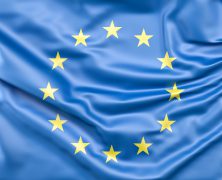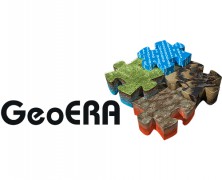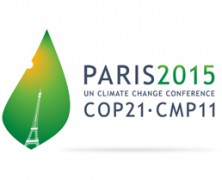The European Commission’s President Ursula von der Leyen has recently pledged that the European Commission will lead a sustainable and transformational recovery which will lead Europe to a “systemic modernization” of the economic and environmental sector. The President called for a healthier Europe by establishing some health research and development programs to enhance Europe’s capacity to respond to cross-border threats. Moreover, she pledged action to boost the single market, reinforce the Economic and Social Union, get the Schengen area working in full again, update the EU’s industry strategy and adapt its competition framework. Read the insights in the press...
Addressing the State of the Union: a speech from the President von der Leyen
posted by EuroGeoSurveys
Establishing the European Geological Surveys Research Area to deliver a Geological Service for Europe (GeoERA)
posted by admin
Today, more than 40 national and regional Geological Survey Organisations (GSOs) from over 30 European countries have joined forces to launch the ERA‐NET co-fund action “Establishing the European Geological Surveys Research Area to deliver a Geological Service for Europe (GeoERA)”. The integration of the participants’ knowledge and information on subsurface resources, to support sustainable use of the subsurface and to address some of Europe’s grand challenges, is the key aim of GeoERA. The GeoERA programme, was initiated through EuroGeoSurveys – the organisation of European Geological Surveys, as part of the realization of its “vision towards a Geological Service for Europe” and extended to all GSOs on the European continent. It has an overall budget of 30.3 M€, of which 10 M€ is provided by European Commission and the remainder is provided by the GeoERA participants as in‐kind contributions to the funded transnational projects. It will provide interoperable, pan‐European data and information services on the distribution of geo‐energy, groundwater and raw material resources and harmonized methods to assess these. It will also develop common assessment frameworks and methodologies for supporting the European national and regional policy-makers for a better understanding and management of the water‐energy‐raw materials nexus to determine potential impacts and risks of subsurface use. Mrs Teresa Ponce de Leão, EuroGeoSurveys President, says “GeoERA represents the key step for establishing a common European Knowledge Base and to a joint provision of a Geological Service for Europe. The Geological Knowledge Base will provide European stakeholders with open access to objective and seamless data, information, knowledge and expertise on subsurface resources and their sustainable use and management”. Mrs Yvonne Schavemaker, GeoERA Project Manager, highlights the large impact GeoERA will have in integrating and harmonizing national and regional research resources and optimizing pan‐European coverage of geological...
The role of CCS (Carbon dioxide Capture and Storage) in mitigating climate change
posted by EuroGeoSurveys
The ambition of the European Union is to deliver a secure, competitive and sustainable energy system, while reducing GHG emissions by at least 40% by 2030 on 1990 levels. The European Strategic Energy Plan (SET plan) aims to accelerate the development and deployment of low carbon technologies and recognizes CCS as an important mitigation technology. The wide-scale deployment and transfer of carbon dioxide capture, transport and storage (CCS) is recognized by the UNFCCC as an environmentally sound technology; as well as by the International Energy Agency (IEA) as a major opportunity for cost–effectively reducing global emissions. For large-scale emissions to be managed adequately within the time frames required, CCS must be allowed to play its crucial role in the decarbonisation of the energy and industrial sectors. CO2GeoNet – The European Network of Excellence on the Geological Storage of CO2, joins together 26 partners from 19 European countries, ranging from national geological surveys, through to research institutes and universities, all with a high international profile and critical mass in CO2 geological storage research. CO2GeoNet is contributing, in collaboration with other international organisations, to side-events and booths at COP21. EuroGeoSurveys is co-organizer together with the European Energy Research Alliance and the Global CCS Institute of the side event “The role of CCS in mitigating climate change” that will be held at the EU Pavillon, room Luxembourg at 10:15-11:00 o’clock. Key players from research organisations, major CCS knowledge networks and initiatives as well as key policy makers in Europe will discuss with the audience the status and way forward for CCS as part of Europe’s low carbon future. The role of CCS in mitigating climate change 10:15-11:00 (EU Pavillon, room...
How to shape EU Energy Policy so as to boost European Competitiveness?
posted by EuroGeoSurveys
Successful participation of EuroGeoSurveys (EGS) to the High Level Conference on “How to shape EU Energy Policy so as to boost European Competitiveness?” that took place the 17th November 2014 at the European Commission. The EU Energy Union is shaped in such a way as to guarantee, not only security of supply for all consumers, but also stable and affordable energy prices for European businesses. The main political decision-makers and industry CEOs together high-level representatives of national and European institutions, research centers, academics and civil society discussed all the crucial and sensitive components of an EU Energy Union that is able to contribute to boosting European industrial competitiveness: economic, financial and technological conditions required to develop renewable energy and other domestic energy resources in order to reduce European dependence on third-country suppliers; development of infrastructure and internal as well as cross-border interconnections; overhaul of national practices on energy levies, tax components of energy prices and network costs; completion and improvement of the functioning of the EU internal energy market; moderation of energy demand and increase of energy efficiency; adjustment of the EU emissions trading system (ETS); diversification of suppliers and supply routes; etc. In this framework, Mr. Mart van Bracht (EGS President) was invited to explain the situation in Europe on the availability conventional and unconventional fossil fuel resources to reduce EU external dependence and prevent disruptions of energy supply. Mr. Mart van Bracht highlighted that unfortunately there is no detailed pan-European and unambiguous information about sub-surface energy resources, but a really very cautious estimate, based on information and know-how available at present, indicates that reserves of unconventional resources equals the decrease of conventional natural gas reserves and resources in Europe. Europe can still supply a serious part of its energy needs by...




